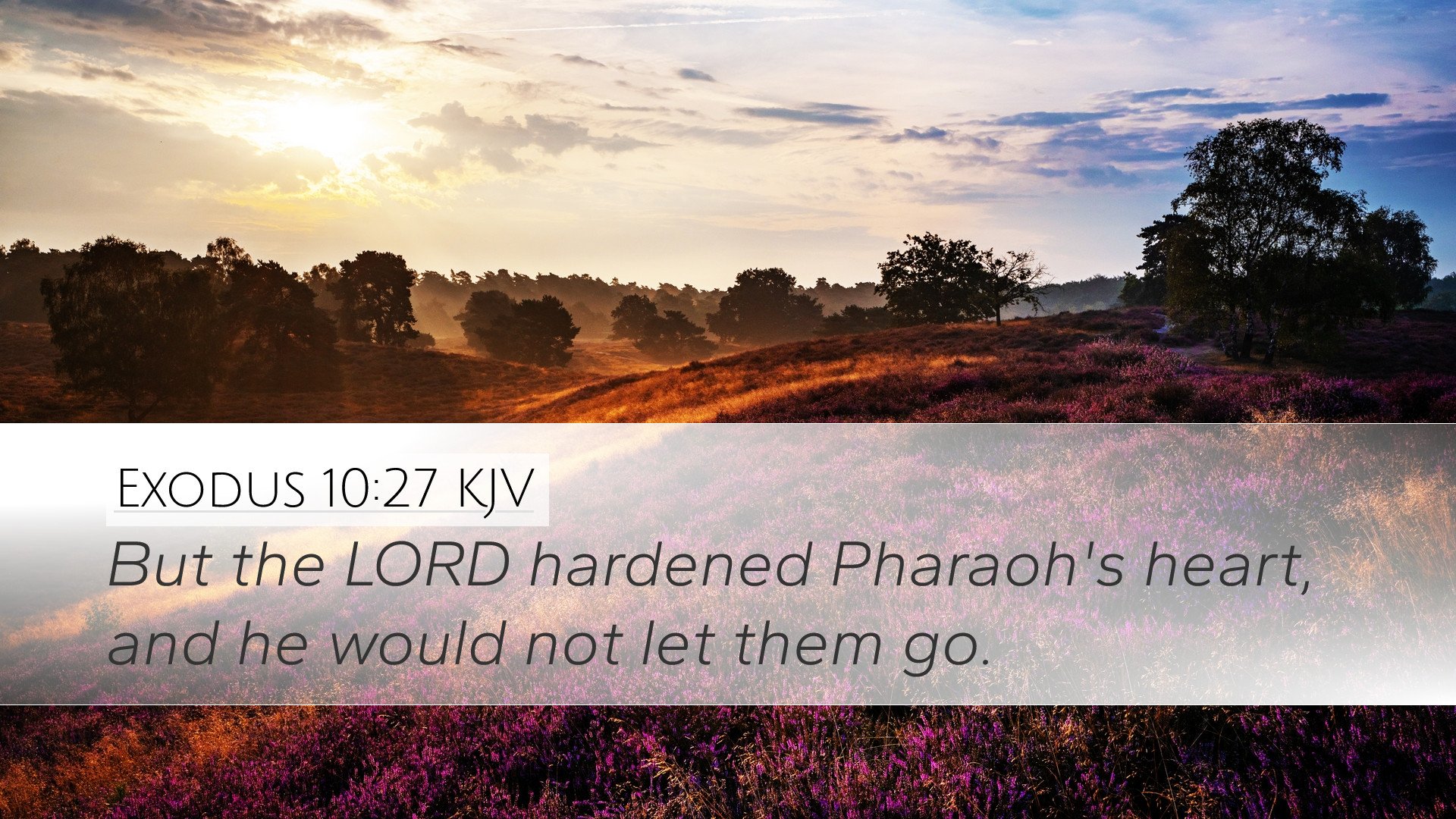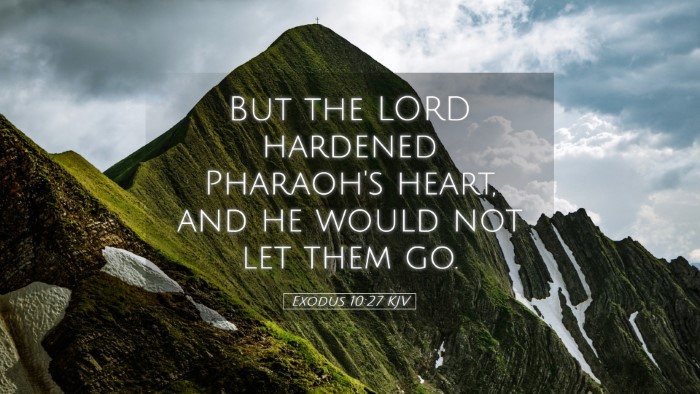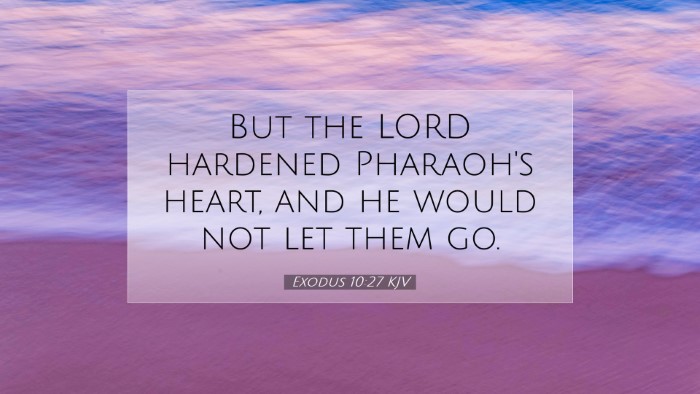Bible Commentary on Exodus 10:27
Verse: Exodus 10:27 - "But the LORD hardened Pharaoh's heart, and he would not let them go."
Introduction
This verse is pivotal in the narrative of the Exodus, highlighting the tension between divine sovereignty and human agency. In discussing the implications of this verse, we will draw insights from renowned public domain commentaries, which bring depth to our understanding of God's purpose in hardening Pharaoh's heart.
Commentary Insights
Matthew Henry's Commentary
Matthew Henry emphasizes that the hardening of Pharaoh's heart serves to reveal God's omnipotence and sovereign authority. He notes that Pharaoh's obstinacy was not merely a result of his own pride but was also orchestrated by God to display His power through the plagues. This act of hardening was a divine strategy to demonstrate that even the mightiest rulers are subject to God's will.
- Divine Sovereignty: Henry posits that God's control over Pharaoh's will makes it clear that no human power can thwart God's plans.
- Purpose of Signs: The plagues serve a double purpose: they are judgments against Egypt's gods and also revelations of God's nature and expectations from His people.
Albert Barnes' Commentary
Albert Barnes provides a thorough examination of the theological implications of God's hardening of Pharaoh's heart. He asserts that this act was not an arbitrary decision but a means by which God ensured that His people would be delivered in a significant manner, thereby establishing His glory among the nations.
- God's Glory Displayed: Barnes underlines that Pharaoh's resistance ultimately served to magnify God's mighty works and lead Israel towards a fuller understanding of their deliverance.
- The Character of God: The hardening shows God's justice and mercy; while it signifies judgment upon Pharaoh, it simultaneously illustrates God's relentless pursuit of relationship with His chosen people.
Adam Clarke's Commentary
Adam Clarke tackles the complexities of divine hardening, suggesting that while God’s intervention played a crucial role, Pharaoh also played a part in his rebellion through his own stubbornness. Clarke argues for a nuanced understanding of the relationship between divine influence and human freedom.
- Human Responsibility: Clarke stresses that while God hardened Pharaoh’s heart, Pharaoh had already set himself on a path of rebellion and defiance against God.
- The Nature of Hardening: Clarke discusses the nature of God's hardening as a withdrawal of grace rather than an infusion of evil: when God withholds His influence, hearts tend to harden due to sin's natural consequences.
Theological Reflections
Theological discussions surrounding Exodus 10:27 raise profound questions about free will, divine justice, and the nature of sin. Understanding these dynamics can provide vital insights for pastors and theologians.
- Free Will vs. Sovereignty: The issue of whether Pharaoh acted autonomously or as a puppet of divine will leads to significant debates about the nature of free will and predestination.
- Understanding Judgments: The plagues were not just punitive measures but designed for educational outcomes, revealing God’s nature to both Egypt and Israel.
- Grace and Judgment: The dual aspect of God's character—mercy and justice—becomes evident, as His actions aim to elicit recognition of His authority from His creation.
Conclusion
In conclusion, Exodus 10:27 serves as a profound reminder of God's sovereignty over human affairs and the mysterious interplay between divine will and human choice. The insights from Matthew Henry, Albert Barnes, and Adam Clarke elucidate key theological themes that are relevant to modern believers, emphasizing the necessity of humility, repentance, and trust in God's overarching plan. For pastors, students, theologians, and scholars, this text invites continual reflection on God's character, the nature of human rebellion, and the divine purpose behind our spiritual journeys.


